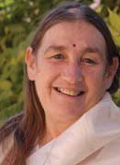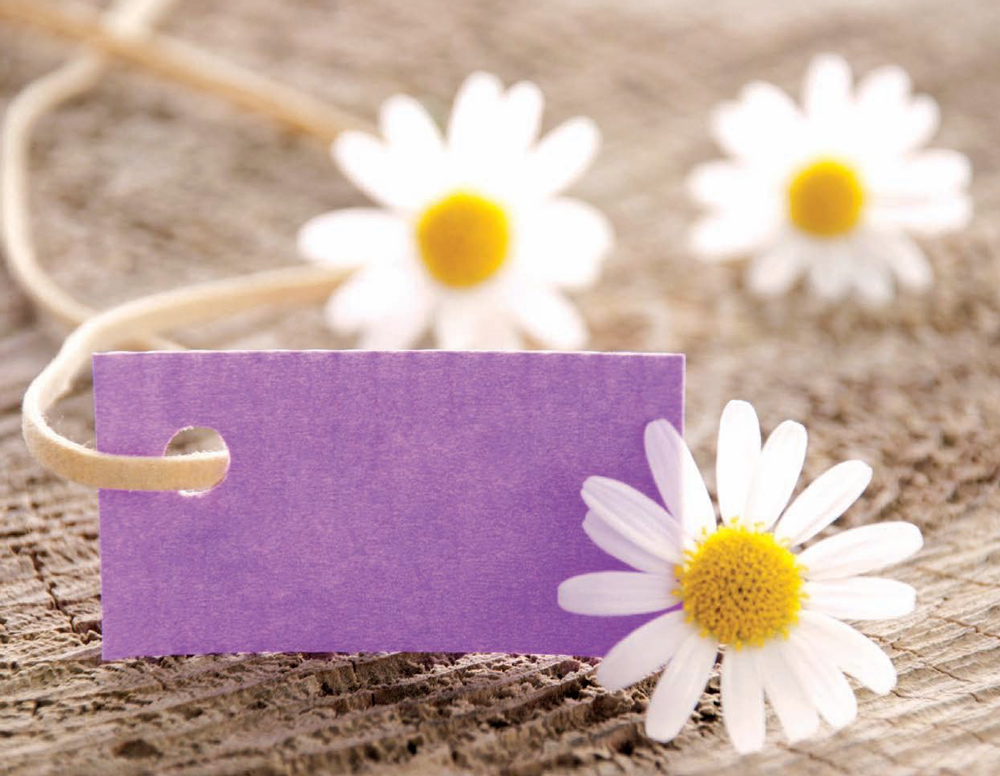A new year offers us an opportunity to make a fresh start and look anew at our life and our goals. What is the gap between our aspirations and our actuality? What can we do to bridge that gap? The New Year also comes amid a whirl of holiday parties and indulgences when many of us fall so far out of our routine that it can seem difficult to get back into it. As we leave the holiday season behind and launch into the exciting possibilities, challenges and opportunities of 2014, let us take a look at ways we can relieve and release stress on all levels and enter the New Year feeling physically cleansed, emotionally balanced, and mentally peaceful, with clear priorities and soaring aspirations.
Much of the January stress we experience is physical. Too much Halloween candy, too many Diwali sweets, too much Thanksgiving food, too many latkes, or too many Christmas cookies, and not enough exercise—the holidays have stressed our physical system.
So the first way to relieve holiday stress is to go on a simple cleansing diet. This is basically a mono-diet suited to our constitution. A typical winter cleanse could consist of a khichri diet for a week or so. This cleansing diet actually saves you time and money as your food preparation each day becomes very simple.
“Getting clear about what we need is a swift and simple way to relieve emotional stress.”
Cleansing Khichri
- 1/2 cup split yellow mung dal
- 1 cup basmati rice
- 1 tbsp ghee
- 1 inch piece of fresh ginger
- 1 tsp turmeric
- 1 tsp each of powdered fennel, cumin and coriander
- 6 cups water
Wash mung dal and rice thoroughly. Heat the ghee, add the spices and cook for a minute, taking care not to burn the spices.
Add rice, dal and water, then bring to boil. Turn down to simmer for 45 minutes or until mung beans are very soft in pot on stove (or make in crock pot cooking overnight) After cooking, add salt to taste. If you live at altitude, cook the mung beans for 45 minutes while soaking the rice, then add the rice and cook for 45 minutes more. You can add a green vegetable such as kale to this recipe.
If you feel that rice for three meals a day would provide too many carbohydrates, you can do a balancing cleanse with mung soup. Basically follow the same recipe but leave out the rice. Alternatively, Kapha types may prefer to substitute barley for rice. It’s also possible to do an Andean cleanse by making a one-pot dish of quinoa and vegetables, with the same spices as the khichri recipe.
In my family, after so much heavy eating on Christmas Day, we always went for a brisk walk by the sea on Boxing Day, as the English call the day after Christmas. There is a lot of wisdom in this simple custom. Many of us feel that New Year is the time to join a gym, but let’s not forget the importance of fresh air and natural environment. A wonderful way to de-stress your body and mind is to take a brisk walk in the park, beside a creek, river or lake, or in the woods. Not only are we taking aerobic exercise, we are also refreshing prana, our vital force.
The holidays also bring unusual levels of emotional stress. Some of us make long journeys to visit relatives with whom we have a difficult past history or challenging relationship. Some of us have been hosting people who don’t treat us respectfully or considerately. Some of us feel lonely because we don’t have family to gather with, or because life has changed since a divorce or relocation. Many of us experience grief in the absence of a loved one who has died. As we come into the New Year, we need some simple ways to relieve emotional stress.

“Many of us feel that New Year is the time to join a gym, but let’s not forget the importance of fresh air and natural environment.”
Getting clear about what we need is a swift and simple way to relieve emotional stress. We are looking here at our needs in terms of universal human needs. If we are thinking, ‘I need to…” then we are not really talking about a need, but rather about a strategy to meet a need. Beneath that strategy is a universal human need rather than a specific thing we need to get or do. “I need to take a break,” for example, is actually a strategy. The universal need underneath is, “I need space.” “I need for these folks to start treating me better” comes down to, “I need respect, ” or “I need appreciation.” As soon as we identify our need in terms of universal needs, we heave an inward sigh of relief. It’s good to be heard; it’s even better to hear yourself. This is known as self-empathy. What’s more, we can practice self-empathy swiftly and silently in the midst of the chaos.
Emotional stress can also be eased by a quick grounding practice. If you are standing, connect with your feet. If seated, connect with your tailbone. Feel roots grow from your feet or tailbone and extend through the green vegetation, through the water table, through the bedrock, deep into the center of the Earth. Feel all your stress and tension releasing into the Earth. Breathe calm, peaceful
golden earth energy up into your heart. With an inner or outer namaste, say thank you to Mother Earth.
Another way to release tension and stress is to hug a tree in your backyard or a public park. The tree has plenty of time to process and so will not be harmed by sharing your load. Feel the tree’s roots deep in the earth, the tree’s branches extending into the sky. Allow the tree to take your stress and the emotional burdens you carry and to fill you with clear, fresh prana or vitality.
We also come into the New Year with a burden of mental stress and tension that furrows our brow. New Year is often a time when I like to clean out closets and drawers, getting rid of things that are no longer needed. Yet it is still more important to clear out our priorities. As my teacher, Rabbi Zalman Schachter-Shalomi likes to say, “The necessary tends to overwhelm the important.” The things we have to do can take over most of our time, leaving no room for the things we are really here to do.

So here is a great practice for this year. Make a list of all the things you do during a typical week, shopping, laundry, working, yoga, reading, email—all your activities. Now rank these activities in order of importance to you as a holistic being. Next, rank this same set of activities in order of the amount of time you spend on this activity each week. You may be surprised to see a vast discrepancy. Some years ago, after doing this exercise, I realized that two thirds of my time was being spent on things that almost anyone else would do better, faster and more efficiently; leaving only a third of my time for the activities that were most important to me. It was soon clear that I had to either eliminate some things or find other ways to get them done. While not as short and sweet as some of the other practices we have mentioned, this exercise is an important way to enter the New Year with clear priorities.
On a fundamental level, our stress comes from a case of mistaken identity. We imagine that we are the doer. This is extremely stressful since many things keep happening that are beyond our control. There is a story about a man in India riding a train with his suitcase on his head. When fellow passengers urged him to put the suitcase on the luggage rack, he replied, “I bought a ticket only for myself, not for my suitcase.” We may laugh at this story, but we do this all the time. So a very quick and easy way to relieve mental stress and tension is to remember this story and then say to yourself, “Put it on the luggage rack.”
The physical, emotional and mental aspects of our being may carry various forms of stress, but our spiritual being, our true nature, always rests in tranquility. We can draw upon this essential nature in moving through life in a calm and effortless way. Just chanting Om shanti, shanti, shanti is a simple and effective way of wishing deep peace and tranquility to our physical, emotional and mental levels. The magic of Sanskrit is such that the meaning is inherent in the sound of the word, so when we chant shanti we immediately feel a tangible sense of peace. We can also send loving kindness to ourselves and to all fellow beings repeating, “May I be happy” with each in-breath and “May all beings be happy” with each out-breath. Breathe in “May I be happy” sending warmth and loving kindness to every cell of your body. Breathe out “May all beings be happy,” as you radiate warmth and loving kindness to everyone in the building, the neighborhood, the city or town, the state, the country and finally to the whole world. You can do this practice at the end of your meditation or yoga session, at the start of your day, or while riding the bus to work or waiting for your flight to board.
Finally, let us not forget the most important part of your toolkit for launching into 2014—a sense of humor.
“On a fundamental level, our stress comes from a case of mistaken identity. We imagine that we are the doer. This is extremely stressful since many things keep happening that are beyond our control.”
Laughter is a great stress release. While you cleanse your body and balance your mind and emotions, remember to lighten up, laugh, sing, and enjoy yourself. Have a wonderful New Year, with a fresh beginning every morning and plenty of laughs along the way.
 Alakananda Ma graduated as a physician from St. Bartholomew’s Hospital Medical College. In 1980, she embarked on a five-year spiritual pilgrimage in India, meeting her Ayurveda teacher, Dr. Vasant Lad. One of the first Western physicians to dedicate her life to Ayurveda, Ma has been practicing Ayurveda since 1989 and is the principal teacher of Alandi Ayurveda Gurukula. alandiashram.org.
Alakananda Ma graduated as a physician from St. Bartholomew’s Hospital Medical College. In 1980, she embarked on a five-year spiritual pilgrimage in India, meeting her Ayurveda teacher, Dr. Vasant Lad. One of the first Western physicians to dedicate her life to Ayurveda, Ma has been practicing Ayurveda since 1989 and is the principal teacher of Alandi Ayurveda Gurukula. alandiashram.org.




